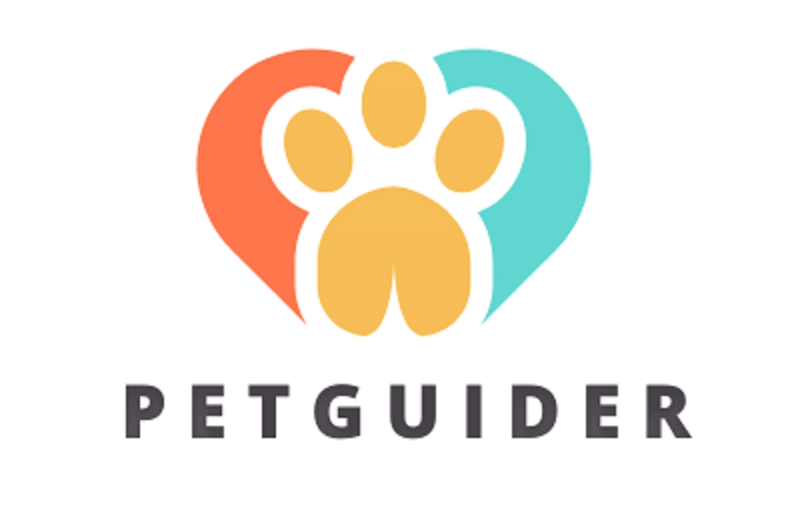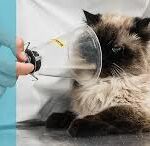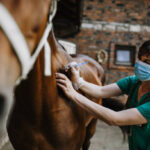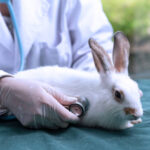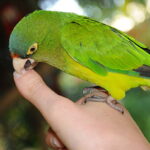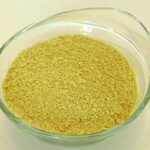It’s a joy to take care of a French Bulldog! The French Bulldog is a playful breed who loves to cuddle and play. Regular vet visits, a balanced diet, exercise, and grooming will keep your dog healthy and happy. Give them plenty of attention and love, and they will be a friend for life. French Bulldogs are a joy to care for and bring so much happiness. We have compiled all the essential tips for the ultimate Frenchie’s care in this article!
How easy are Frenchies to care for?

French Bulldogs are also called Frenchies. They are popular dogs that have adorable wrinkled faces and charming personalities. Frenchies require little maintenance when it comes to their care. The Frenchies have a short and smooth coat, which requires little grooming. They are also not known for being heavy shedders. The dogs are also suitable for apartment life as they require little exercise.
Due to their short snouts and the tendency to have breathing problems, Frenchies may need special care during hot weather conditions or when they are doing a lot of physical activity. Regular veterinary checks are also important because they are susceptible to health problems such as hip dysplasia and eye issues. Responsible dog breeders filter these to reduce the likelihood of them occurring. Breeders who are responsible can also identify and treat diseases. With the proper care and attention, Frenchies are a wonderful addition to any home.
How to Keep your Frenchie fit?
Keep your French Bulldog healthy and fit with a combination of diet, exercise, and preventive care. Here are some tips on how to keep your Frenchie fit:
Balance your diet:
You should feed your Frenchie an age-appropriate, balanced diet that is appropriate to their size and activity level. Overfeeding is not recommended, as Frenchies tend to gain weight.
Regular exercise:

Frenchies have a low energy level but still require regular exercise in order to stay healthy. Keep them active with daily walks, games, and other physical activities.
Preventative health care:
For your Frenchie to remain healthy, you must take him for regular veterinary examinations and receive preventive care such as parasite control and vaccinations.
Avoid Obesity:
Frenchies can be prone to obesity. It’s therefore important to keep an eye on their weight and to avoid overfeeding. Moderation is key. Avoid giving in to puppy-dog looks at the dinner table and offer healthy treats.
Mental stimulation:

Frenchies need mental stimulation as well to stay fit. Keep them mentally and physically active by providing interactive toys, puzzle feeders, and other mental stimulation.
Frenchie health problems that you should be aware of
All breeds are susceptible to some health problems. Responsible dog breeders will always screen their parent dogs prior to breeding. This will reduce the risk of genetic diseases affecting the French Bulldog’s lifespan. Here are the most common health issues that Frenchies face:
Breathing difficulties:
Frenchies have a brachycephalic snout. This can cause breathing problems, especially during hot weather and physical activity. French bulldogs are known to snore, grunt, and breathe loudly. If your dog is clearly in pain, you should consult a veterinarian.
Skin allergies:
Frenchies can suffer from skin allergies that cause rashes and itching. French bulldogs can be allergic to certain detergents or chicken meat. If your dog is scratching a lot, you should try to replace these items.
Eye problems:

Frenchies are susceptible to eye problems such as cherry eye, cataracts, and dry eye. Bulldogs are prone to cherry eye, which can be reversed by massage. Even more severe cases can be cured.
Hip dysplasia:
Hip dysplasia affects many breeds of dogs, including Frenchies. This congenital disorder can lead to arthritis and other joint issues. Responsible breeders always screen for hip dysplasia, and we test our puppies, too.
The intervertebral disc disease:
Frenchies can also be prone to Intervertebral Disk Disease, which affects the discs of the spine. This condition can cause paralysis and back pain. A short stature is the reason for 99% of French Bulldogs being predisposed to IVDD. You can prevent it by not letting your dog jump off high places or climb up stairs too often.
Gastrointestinal problems:

Frenchies are also susceptible to a number of gastrointestinal issues, including constipation, bloating, and megaesophagus.
Working with your veterinarian is important for monitoring and treating any health issues that may arise. Regular preventive care can help to maintain the health and well-being of your Frenchie. This includes vaccinations, regular exams, and eating a healthy diet.
The right diet
It is important to consider the age, size, and activity level of your French Bulldog, as well as any health concerns. Here are some guidelines to help you select the right diet for your Frenchie.
A balanced diet of high-quality:
You should feed your Frenchie an appropriate diet that is balanced and of high quality for its age, size, activity level, and breed. Find a food that meets the nutritional standards set forth by the Association of American Feed Control Officials.
Overfeeding is not recommended:

Frenchies tend to gain weight, so you should avoid overfeeding them and encourage regular exercise in order to maintain a healthy body weight.
Check the protein content:
Frenchies are prone to food allergies, so you should choose a varied diet and be on the lookout for signs of intolerance.
Consider frequent, small meals:

Frenchies may also experience a range of digestive problems, such as bloat or reflux. To minimize these issues, consider giving smaller meals more frequently.
Table scraps are not recommended:
Table scraps are high in calories and fat, and they can cause digestive issues and food intolerance. Stick to a nutritionally balanced diet for your Frenchie.
Following these guidelines and working with your vet, you can ensure that your French Bulldog receives the right nutrition for optimal health and well-being.
